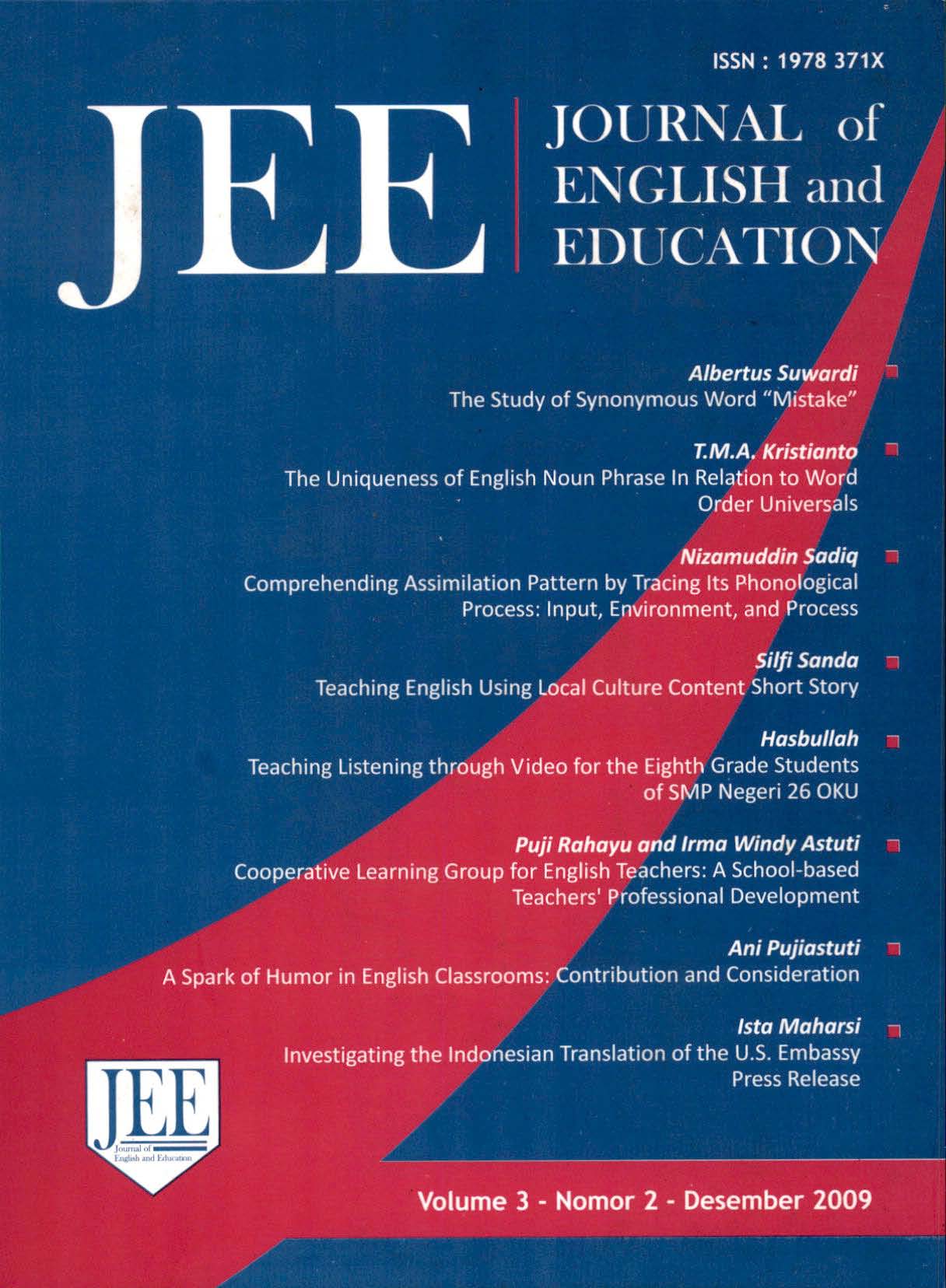Main Article Content
Abstract
The languages used all over the world have their own grammars consisting of certain components, like items, word order, and prosodic patterns. Based on the findings of the typological research conducted by some linguists, like Chomsky (1965), Greenberg (1966), and Hawkins (1983), it is known that the human languages have certain tendencies. After comparing a number of 30languages, Greenberg made three classifications of language in terms of universal word order, they are; (1) the languages of VSO type, (2) languages of SVO type, and (3) languages of SOV type. He found that the three types of classification correlate with the languages in other places in the grammar consistently. In addition, he also made 15 formulations of universal word orders in which three of the mare; (1) Languages with dominant SVO order always have prepositions; (2) on the contrary, the ones with SOY type usually have postpositions; and (3) in the languages with dominant SVO order, the genitive and adjectives follow the noun. This formulation is supported by Hawkins after comparing 336 languages from different families. Based on the above formulation; it is found that English has uniqueness in terms of the phrase order. In this language, the order of NP is AN and GN despite having a relatively fixed order, SVO. This study aims to discuss the forms of English NP and to find out the reason why English has uniqueness in its phrase order based on the formulation made by Greenberg and Hawkins.
Keywords
Article Details

This work is licensed under a Creative Commons Attribution-ShareAlike 4.0 International License.

